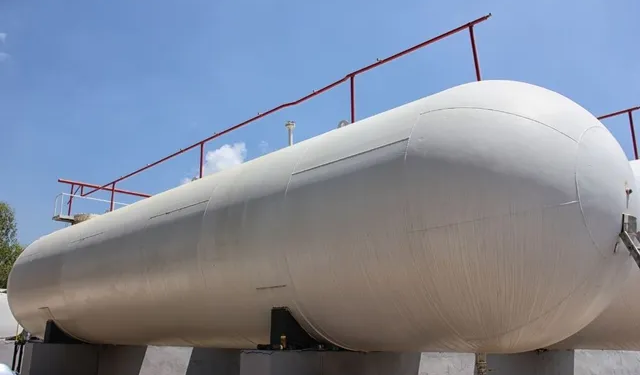Are you looking for a reliable pressure vessel for your plant? If so, you will discover various types of pressure vessels, including their applications and advantages.
Pressure vessels are among the biggest business investments in the manufacturing and processing industries. Therefore, much thought goes into selecting the right vessel to match the production rate and quality standards. Whether you’re importing or purchasing from a pressure vessel manufacturer in India, understanding how different types of pressure vessels operate is crucial.
But first,
What is a Pressure Vessel?
A pressure vessel is a specialised container that holds gases, liquids, and vapours at a higher pressure than the atmospheric pressure. The container is enclosed, and its design varies between spheres, cylinders, and cones.
Pressure vessels are essential in different industrial processes, including food and beverage, oil and fuel, chemical, and pharmaceutical industries. Common places where you are bound to find a pressure vessel include petrochemical plants, oil refineries, mining operations, spaceship habitats, and hydraulic reservoirs.
Apart from storage, manufacturers will also use pressure vessels for heat exchange, chemical reactions, and distillation. In fact, some of the uses and designs influence the naming of different types of pressure vessels.
Types of Pressure Vessels
- Heat Exchangers
Heat exchangers are among the most common type of pressure vessels. The exchanger transfers heat from one fluid to another, enabling a chemical reaction. Usually, the heat exchange occurs at different temperatures without the fluids coming into direct contact. In addition, the fluid flows rapidly inside the tubes, resulting in high internal pressure.
Heat exchangers are widely used in manufacturing and processing industries, such as food, pharmaceuticals, and bioprocessing. The types of heat exchangers include shell and tube, plate, and double tube heat exchangers.
- Storage Vessels
Storage vessels are another common pressure vessel found in almost every industrial process. As the name suggests, storage vessels will store liquids and gases at various stages of the industrial process. Alternatively, they can store the finished products in the form of compressed natural gas or liquid nitrogen.
The storage vessels come in a wide range of sizes, and most feature carbon steel material. You must ensure the internal and external materials don’t compromise the product’s safety.
- Process Vessels
You’ll need a process vessel if you are performing an industrial process, such as distillation, decanting, agitation, mass separation, or mixing. Typically, all industrial processes occur inside the process vessel. In addition, the process vessels work alongside storage vessels and heat exchangers.
These vessels come in different designs, depending on the function. The specialised types include distillation columns, chemical reactors, industrial mixers, and decanters. In addition, each vessel utilises a specific amount of pressure and temperature level.
- Boilers
Boilers are known to store hot liquids at high pressure. They are enclosed and derive heat from nuclear, fuel, or electrical power. Moreover, boilers will heat liquids by transferring heat from the power source to the fluid, creating vapour.
The resulting vapour will then facilitate power generation or heating applications, such as drying, calcining, or heating fluid. Due to the high temperature and pressure levels, boilers feature high-strength materials to withstand thermal stress.
These are the different types of pressure vessels, but you may notice that some pressure vessels are based on their shapes. For example, if you consider geometry, the different pressure vessels include spherical, cylindrical, torispherical, ellipsoidal, and hemispherical pressure vessels. However, the most popular are spherical and cylindrical vessels.
- Spherical Pressure Vessels: Many plant operators prefer this pressure vessel because of its strong structure. As the name suggests, the pressure vessel is shaped like a sphere, making it ideal for storing high-pressure fluids. The shape facilitates even pressure distribution, eliminating internal and external weak points. In addition, they have a smaller surface area per unit volume and consume less material than cylindrical vessels. The only downside is that spherical pressure vessels are expensive.
- Cylindrical Pressure Vessels: Cylindrical pressure vessels are popular because of their versatility and affordability. However, cylindrical vessels are not as strong and reliable as spherical vessels when storing high-pressure fluids. The vessels have half the strength of spherical pressure vessels because of the weak points at the weld line. The weld line is where the head connects to the shell.
Pressure vessels are unique, and the different designs make it harder to find the best one. However, understanding how each pressure vessel functions will simplify the selection process and result in successful industrial processes. Furthermore, you can always contact pressure vessel manufacturers, such as Godrej, for expert advice. Godrej also offers a wide selection of pressure vessels in one place.
